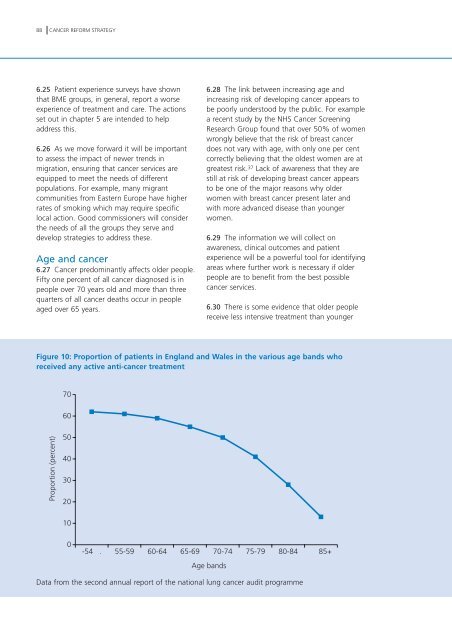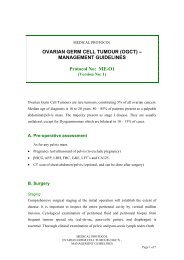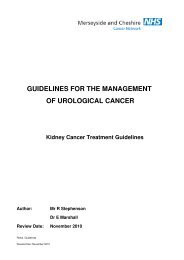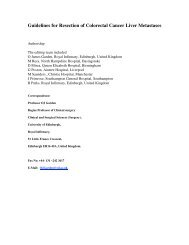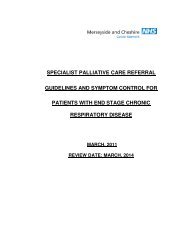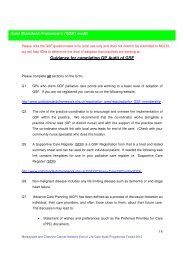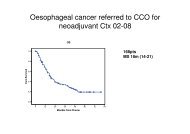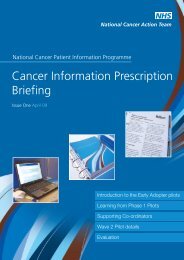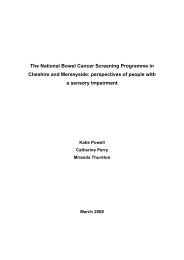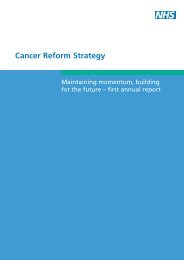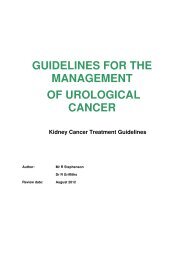Cancer Reform Strategy - NHS Cancer Screening Programmes
Cancer Reform Strategy - NHS Cancer Screening Programmes
Cancer Reform Strategy - NHS Cancer Screening Programmes
- No tags were found...
You also want an ePaper? Increase the reach of your titles
YUMPU automatically turns print PDFs into web optimized ePapers that Google loves.
88 CANCER REFORM STRATEGY6.25 Patient experience surveys have shownthat BME groups, in general, report a worseexperience of treatment and care. The actionsset out in chapter 5 are intended to helpaddress this.6.26 As we move forward it will be importantto assess the impact of newer trends inmigration, ensuring that cancer services areequipped to meet the needs of differentpopulations. For example, many migrantcommunities from Eastern Europe have higherrates of smoking which may require specificlocal action. Good commissioners will considerthe needs of all the groups they serve anddevelop strategies to address these.Age and cancer6.27 <strong>Cancer</strong> predominantly affects older people.Fifty one percent of all cancer diagnosed is inpeople over 70 years old and more than threequarters of all cancer deaths occur in peopleaged over 65 years.6.28 The link between increasing age andincreasing risk of developing cancer appears tobe poorly understood by the public. For examplea recent study by the <strong>NHS</strong> <strong>Cancer</strong> <strong>Screening</strong>Research Group found that over 50% of womenwrongly believe that the risk of breast cancerdoes not vary with age, with only one per centcorrectly believing that the oldest women are atgreatest risk. 37 Lack of awareness that they arestill at risk of developing breast cancer appearsto be one of the major reasons why olderwomen with breast cancer present later andwith more advanced disease than youngerwomen.6.29 The information we will collect onawareness, clinical outcomes and patientexperience will be a powerful tool for identifyingareas where further work is necessary if olderpeople are to benefit from the best possiblecancer services.6.30 There is some evidence that older peoplereceive less intensive treatment than youngerFigure 10: Proportion of patients in England and Wales in the various age bands whoreceived any active anti-cancer treatment7060Proportion (percent)50403020100-54 .55-5960-6465-6970-7475-7980-8485+Age bandsData from the second annual report of the national lung cancer audit programme


